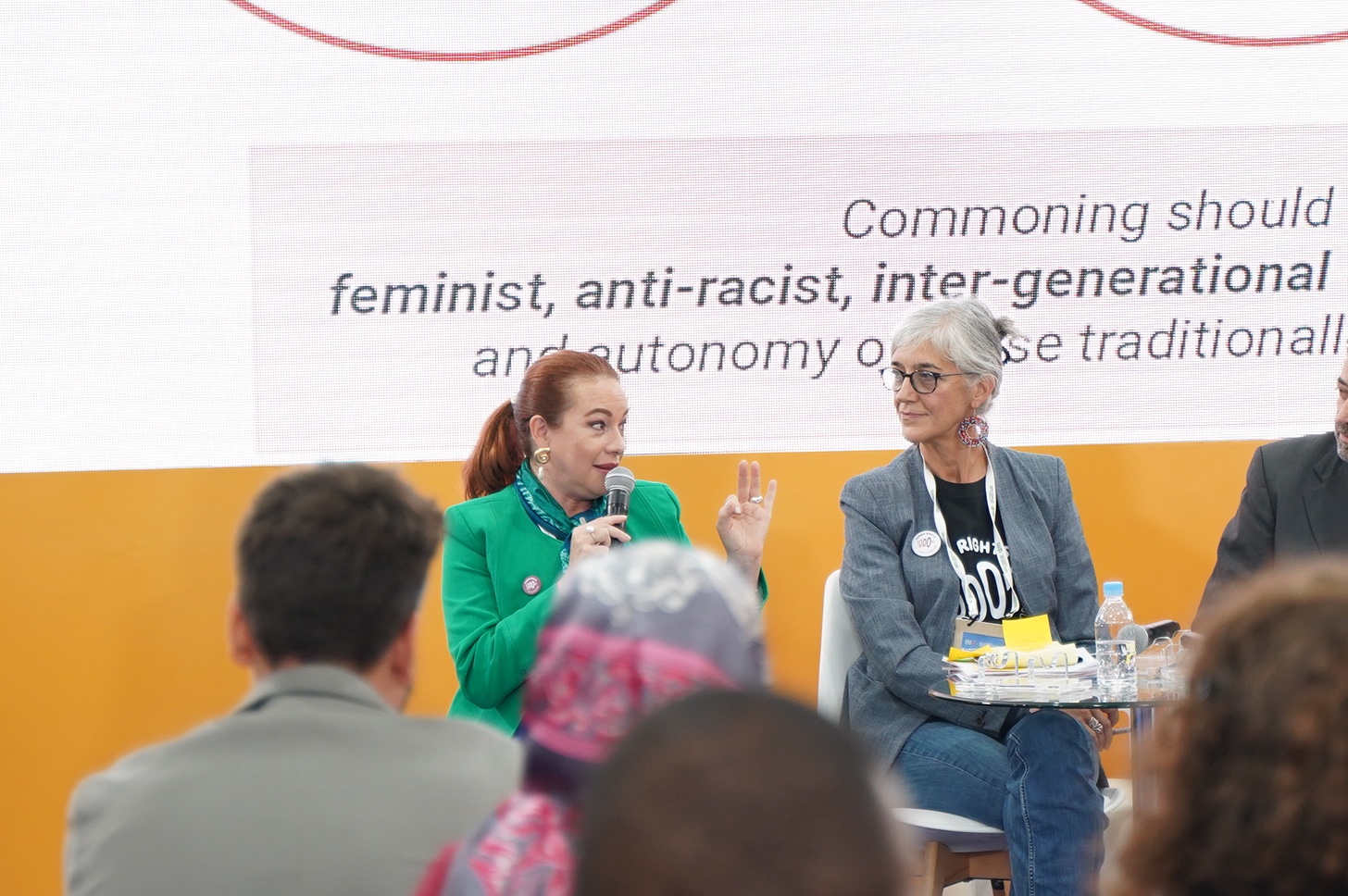One of the UCLG World Congress Town Hall sessions on 13 October was dedicated to the commons, more precisely the importance of creating conditions to protect and foster the commons. The “commons” are defined as material and immaterial goods, resources, services, and social practices that are considered fundamental for the reproduction of life. Therefore, the global commons cannot be commodified but must be cared for and managed in a collective way, using the democratic principles of direct participation, radical inclusion, and intersectional equity and justice. They must also be approached within a continuum of stewardship and commitment, taking into account past, current, and future generations and all forms of life.
While the relevance of the commons has been substantiated some time ago via strategies that put forward collective well-being and care of natural and social goods and practices as part of a renewed social contract, the interest in urban commons is still emerging. The discussions about community parks and public spaces, infrastructure, access to basic services and affordable housing, urban social movements, and the call for local governments to take a progressive approach, have been raised to countervail the harmful side-effects of gentrification and privatization, among other challenges that cities and their residents face.
The policy paper “Global Commons,” the foundation of the discourse, suggests a framework centered on the right to the city as a driving principle in transformative ‘commoning’ initiatives (i.e., initiatives aimed at fostering and improving the quality of the commons). The close connection between the right to the city and the commons is reflected by three facets: (1) common goods in the city; (2) the city as a common good; and (3) commons/commoning as a tool for implementing the right to the city.
Local and regional governments play a crucial role in protecting, strengthening, and multiplying the commons and will need to develop original strategies and approaches to address the many challenges, including morphological, demographic, and governance transformations that cities face. To implement the recommendations, rights and key resources need to be secured, and residents must be able to rely on open and participatory approaches. In this sense, the commoning processes can be implemented through strategies that harness collective action, enabling local and regional spheres can become exhibits of the collective management of common goods through public-community partnerships. The strengthened collaboration with civil society under collective management schemes can allow for local and regional governments to act more effectively and to respond to increasing urban challenges while addressing the needs of communities.
The session resulted in several recommendations for strategic actions that support existing commoning initiatives and create a positive environment for new initiatives emerged. The recommendations for immediate actions include: open up consultations and foster participatory engagement of various constituencies; identify gaps and possibilities within the regulatory framework and suggest modifications and improvements needed to foster and protect commons; and, establish permanent two-way communications channels between public authorities and community actors. Other recommendations related to participatory design; regulatory innovations and mechanisms for collaboration; social control; peer-to-peer sustained learning; and capacity-building.

